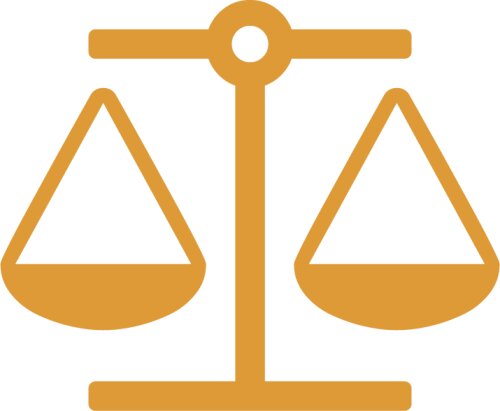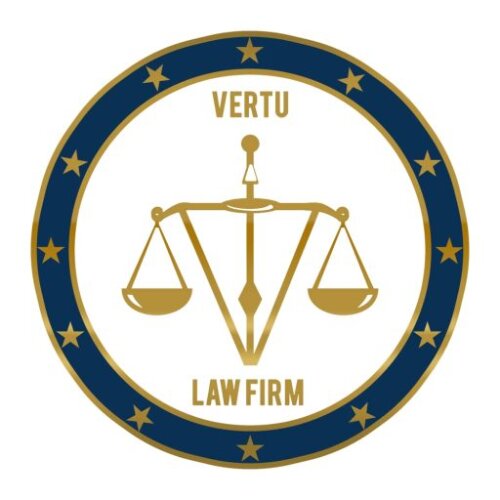Best Transportation Lawyers in DR Congo
Share your needs with us, get contacted by law firms.
Free. Takes 2 min.
Or refine your search by selecting a city:
List of the best lawyers in DR Congo
About Transportation Law in DR Congo
Transportation law in the Democratic Republic of the Congo (DRC) encompasses a wide array of regulations and legal frameworks that govern the movement of goods and people within the country. As the DRC is rich in natural resources, transportation plays a critical role in its economy to facilitate trade and commerce. The legal landscape involves various modes of transportation, including road, rail, air, and water transport, and is influenced by both domestic laws and international conventions. Compliance with these legal standards ensures safety, efficiency, and reliability in transportation operations throughout the nation.
Why You May Need a Lawyer
There are several situations where individuals and businesses involved in transportation may require legal assistance in the DRC:
- Disputes arising from transportation contracts or agreements.
- Issues related to compliance with safety regulations and standards.
- Liability and insurance claims due to transportation accidents.
- Resolving conflicts related to the import and export of goods.
- Navigating the complexities of cross-border transportation and international trade laws.
- Ensuring proper licensing and permits for operating transportation services.
These challenges necessitate the involvement of a knowledgeable attorney to navigate the legal intricacies and protect the interests of those involved.
Local Laws Overview
The key aspects of local transportation laws in the DRC reflect the country's infrastructure and economic needs:
- Road Transport: Regulation of vehicle registration, driver's licensing, and adherence to traffic safety standards.
- Rail Transport: Oversight of railways for safe and efficient service, as rail remains vital for the mineral-rich regions.
- Air Transport: Compliance with international aviation standards and safety protocols enforced by national authorities.
- Water Transport: Governance of ports and waterway transportation given the Congo River's key economic role.
- Environmental Regulations: Ensuring transportation activities do not negatively impact the environment.
- Public Transportation Policies: Management and regulation of public transport to improve urban mobility.
Understanding these laws is essential for those operating within the transportation sector to avoid legal pitfalls and promote sustainable development.
Frequently Asked Questions
1. What licenses are required for commercial trucking operations in the DRC?
Commercial trucking operations require a valid commercial vehicle operator's license, vehicle registration, and insurance. Additional permits may be needed depending on the type of goods being transported.
2. How are traffic violations handled in the DRC?
Traffic violations are managed by local law enforcement. Offenders may face fines, driver's license suspension, or imprisonment, depending on the severity of the offense.
3. Are there specific regulations for transporting hazardous materials?
Yes, transporting hazardous materials is subject to strict regulatory controls concerning packaging, labeling, and safety measures to prevent accidents and environmental hazards.
4. What should I do in case of a transportation accident?
Immediately report the accident to local authorities, seek medical attention if necessary, and contact your insurance provider. If legal issues arise, consult an attorney specializing in transportation law.
5. How does one handle disputes with shipping or logistics companies?
Disputes with logistics companies can be addressed through negotiation, mediation, or legal action, depending on the contract terms and the nature of the dispute.
6. Are there laws regarding environmental impacts of transportation?
Yes, there are environmental protection laws aimed at reducing the ecological footprint of transportation activities, including regulations on emissions and waste management.
7. Is insurance mandatory for transportation companies?
Yes, transportation companies must have adequate insurance coverage for their vehicles and operations to protect against liabilities stemming from accidents or cargo damage.
8. What legal challenges are common in cross-border transportation?
Legal challenges in cross-border transportation include customs regulations, tariffs, and compliance with international trade agreements to facilitate the movement of goods across national borders.
9. How are public transportation services regulated?
Public transportation services are regulated to ensure safety, reliability, and affordability for passengers. Operators must adhere to service standards and obtain necessary permits.
10. Can foreign companies operate transportation businesses in the DRC?
Foreign companies can operate in the DRC but must comply with national laws, including registering as a business entity and obtaining relevant licenses and permits for operation.
Additional Resources
For those seeking legal advice or more information on transportation in the DRC, the following resources may be helpful:
- The Ministry of Transport and Communications: Overseeing the implementation of transportation laws and regulations.
- The National Office of Transport: Providing regulatory oversight and development of transportation infrastructure.
- The Federation of Congolese Enterprises (FEC): Addressing business interests, including those in the transportation sector.
- UNCTAD Transport and Trade Facilitation Reports: Offering insights into global trade and transportation in a Congolese context.
Next Steps
If you need legal assistance related to transportation in the DRC, consider the following steps:
- Conduct preliminary research to understand your legal needs and gather relevant documentation.
- Contact a law firm or legal advisor specializing in transportation law in the DRC for a consultation.
- Discuss your situation in detail and seek advice on how to proceed with your specific issue.
- Follow the legal recommendations and ensure compliance with all legal obligations to mitigate risks.
- Consider ongoing legal support to navigate future transportation challenges smoothly.
Lawzana helps you find the best lawyers and law firms in DR Congo through a curated and pre-screened list of qualified legal professionals. Our platform offers rankings and detailed profiles of attorneys and law firms, allowing you to compare based on practice areas, including Transportation, experience, and client feedback.
Each profile includes a description of the firm's areas of practice, client reviews, team members and partners, year of establishment, spoken languages, office locations, contact information, social media presence, and any published articles or resources. Most firms on our platform speak English and are experienced in both local and international legal matters.
Get a quote from top-rated law firms in DR Congo — quickly, securely, and without unnecessary hassle.
Disclaimer:
The information provided on this page is for general informational purposes only and does not constitute legal advice. While we strive to ensure the accuracy and relevance of the content, legal information may change over time, and interpretations of the law can vary. You should always consult with a qualified legal professional for advice specific to your situation.
We disclaim all liability for actions taken or not taken based on the content of this page. If you believe any information is incorrect or outdated, please contact us, and we will review and update it where appropriate.
Browse transportation law firms by city in DR Congo
Refine your search by selecting a city.
















